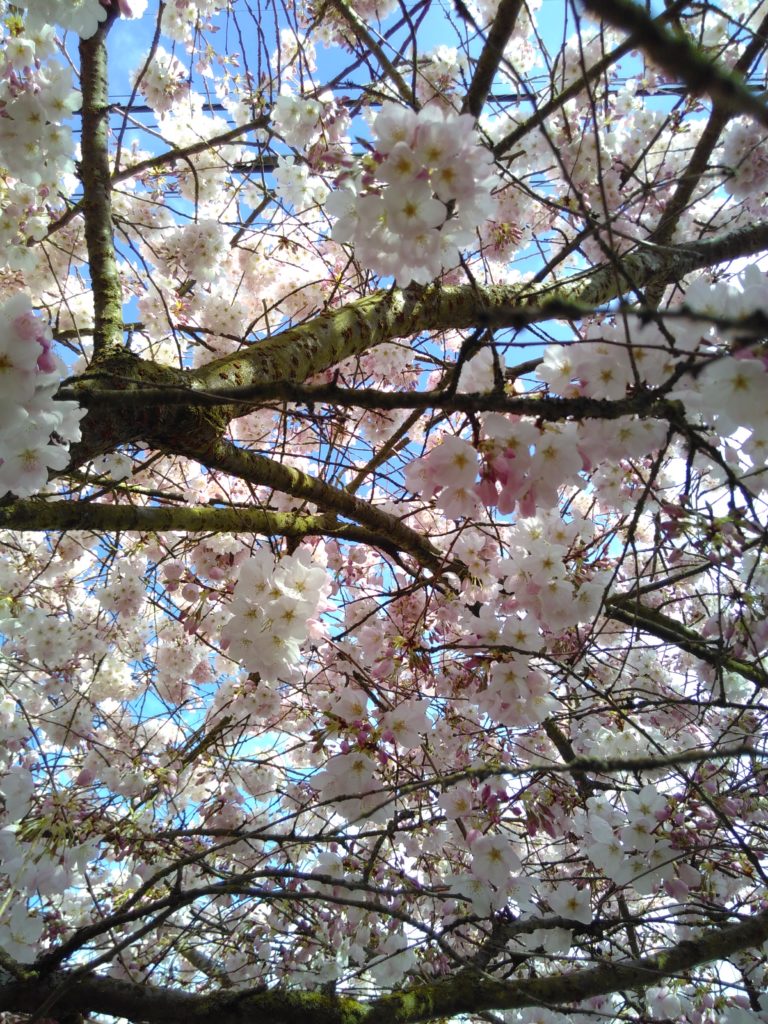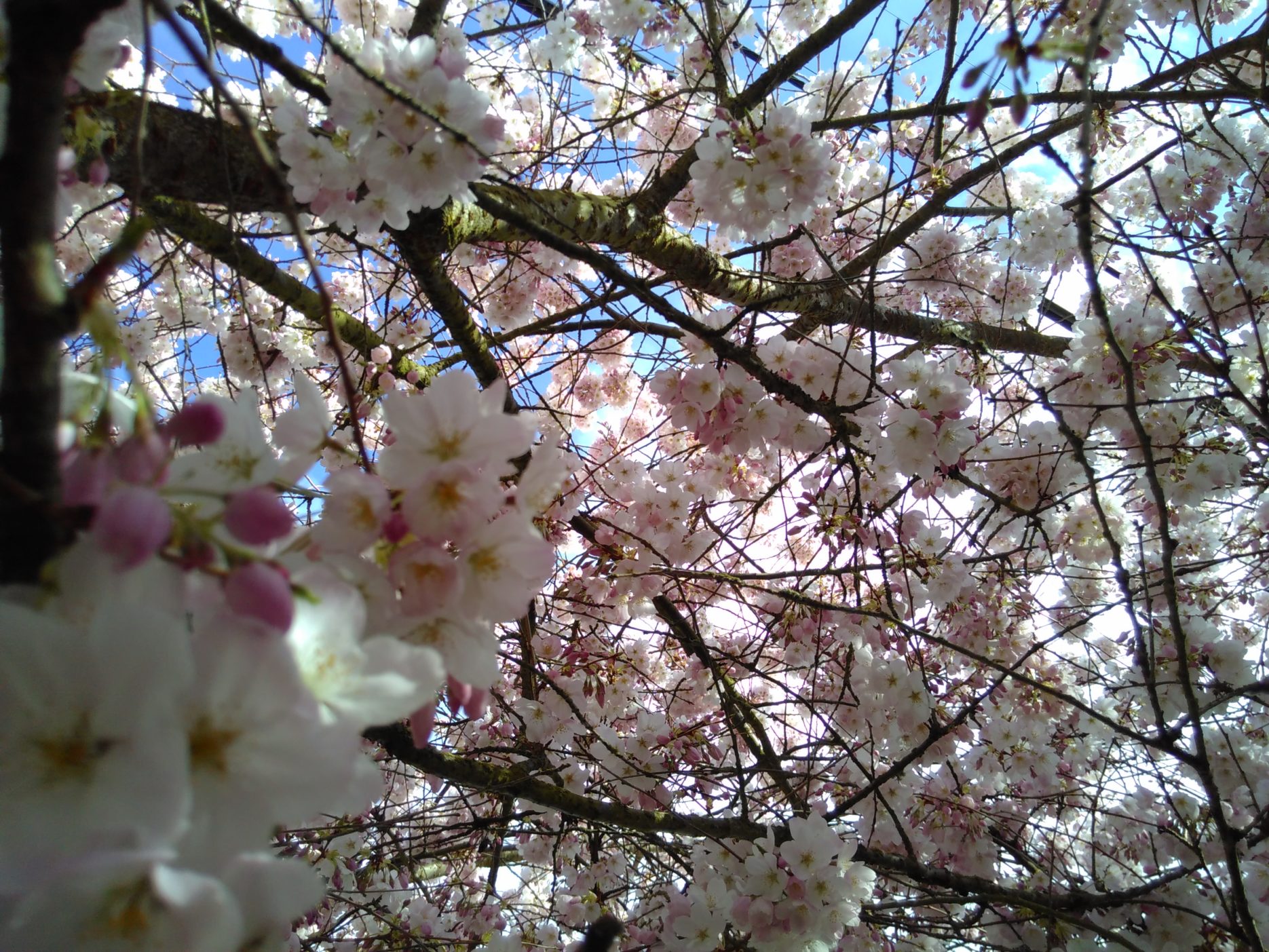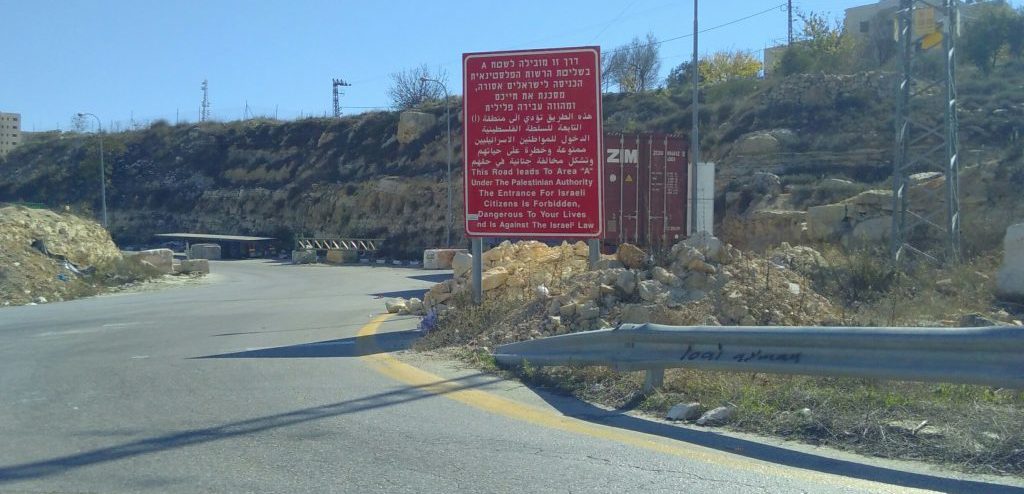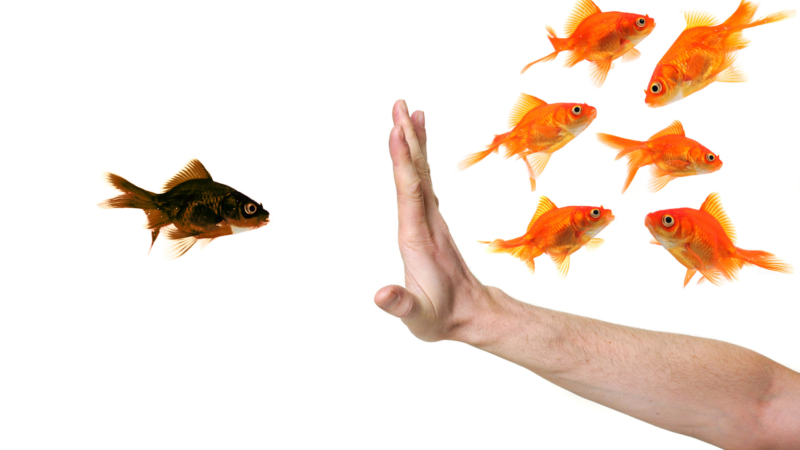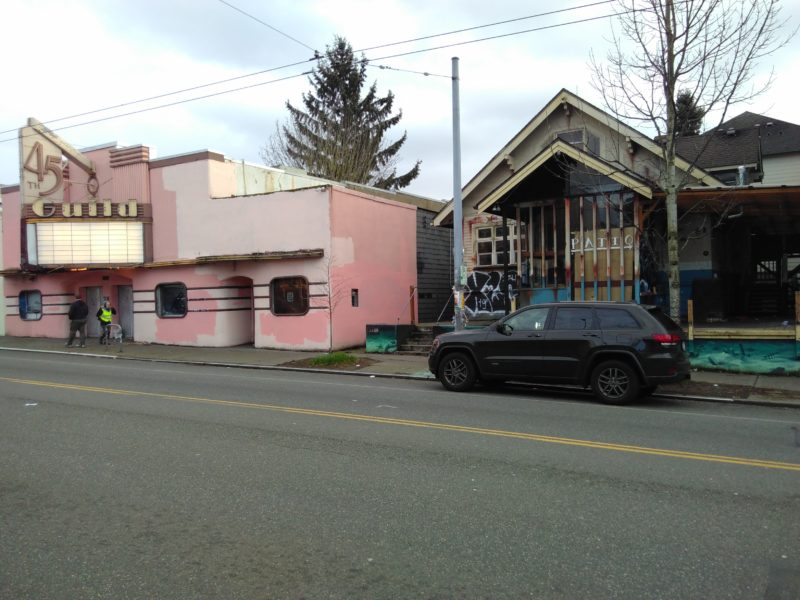Or, put differently: COVID-19 is a reminder for the world to change today
‘The world will not be the same.’ COVID-19 is affecting us in unforeseen and deeply challenging ways and many people feel it will have a lasting impact on the future. They say it is a reminder for the world to change. It might open the way for us to take a new path as a global society. But how does such a path look like? Will we really go down that way? How can we respond to the current situation in such a way that it is meaningful – both for ourselves and others, now and for future generations? Especially if we take into account that many of us are asked not to go anywhere and stay at home.
I am writing this article in my own room in Seattle. Looking through the window. It is a rainy day. How, I am wondering, can I do something meaningful with the current situation?
The State of Washington (in the United States of America), and especially this city, is hard-hit by the new coronavirus. The amount of cases keeps rising, together with the number of people that died after being infected. Our centre, NalandaWest, has been closed down for the public. As residents we follow the instructions by the State governor, telling us to stay inside as much as possible. If we do groceries or go for a walk outside, we do our best to adhere to the rule of a minimum of 6 feet (about 1.5 meters) distance to others.
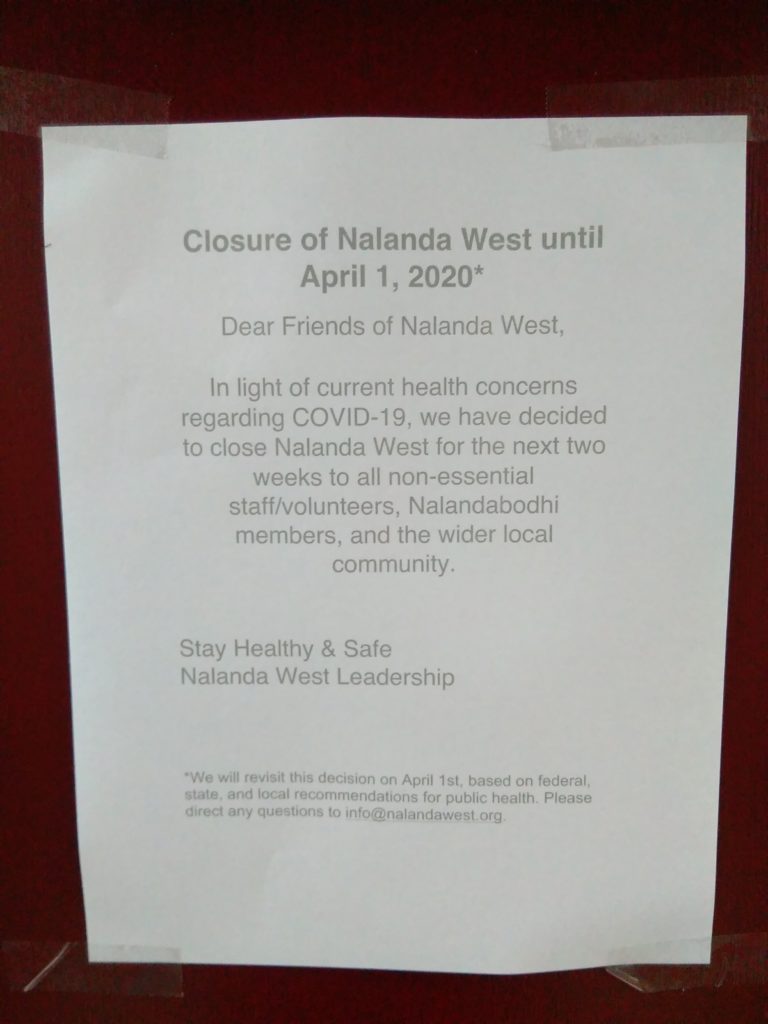
So, here I am. Safely inside. Behind my small table. With some books and a cup of tea. Earlier this morning I did some analytical meditation on the so-called four reminders or ‘common foundations’ as found in the buddhist teachings. I read them often. The first is the preciousness of this human body or birth. This is the one that often, certainly now, speaks to my heart strongly.
The majority of the readers of this article are relatively safe and free. Your life is not directly at risk and you can afford to watch movies, drink coffees, eat good food and spending time with your friends & family in all kinds of ways. Currently you need to do all this mostly in your own house, but other than that you are probably okay. Is this making good use of your time? Are you doing something meaningful? Am I, working on this article and typing these words?
I am not sure. My mind takes me to all the people that are currently infected by the virus and in need of all kinds of support. I am thinking about those who struggle being isolated, many among them feeling lonely, anxious or suddenly notice they have not been doing well for a long time. I visualise the hundreds of millions of people that live in uncertainty because they are currently without payment or lost their job entirely. To some of them, having no income means having no food. I am also keeping in mind the deep economic impact that the current situation will have in the long-run. And the list of groups of people that suffer goes on and passes through my heart. Is what I am doing now, of any benefit to them?
Maybe it is. There are, in situations like these, many things that can be done to help others. All doctors, nurses and other caretakers that make sure people get the support they need. Teachers making lessons online so that students can continue to learn. Farmers growing plants, fruits and vegetables, those who make sure this ends up in our supermarket, where employees still work – all to have food still available to all of us. Who knows, soon we might have a universal basic income to make sure everyone can actually afford buying that – which is currently not the cases for hundreds of millions if not billions of people.1 https://www.aljazeera.com/indepth/opinion/coronavirus-lockdown-basic-income-200321130521139.html I wish politicians decide today to at least start with an emergency basic income today. It is our responsibility to take care of each other, certainly those who are not as well-favored as ourselves. So, is the question about doing something meaningful perhaps identical or related to the question of what it means to take responsibility? If so, what is my responsibility? What is yours?
We can take the new coronavirus as a reminder on a collective level. Like we can take our own precious life as a reminder individually. It is currently easy to see that every moment is impermanent. Neither our lives nor the anticipated future is as stable as we imagined it to be. It is equally easy to understand how deeply connected we are. Something that is often referred to in buddhist tradition as ‘interdependent’. There are some who still do not realise how they might affect others by ignoring advise about keeping physical distance, isolate yourself when being sick and so on. To most, however, it is obvious that what you do will affect other people. Not just where you are, but possibly somewhere at the other end of the world. Not just today, but also in the future. So, the choices we make, is at the same time a choice for the world now, and the world to be?
This I take as certain. And if it as certain for you as it is for me, we now need to decide: how do I make a responsible and meaningful choice – for my own life and all others, now and in the future? The answer to this question is personal. Only you can answer it. Like only you can make that choice. But the question is more important than the answer. And once you continue to ask it, there is no point of return: you have entered a spiritual journey. The nature of such a journey is that it takes you into the unknown.
I took a buddhist path. More specifically, a vajrayana path. Thus, I use this time to study buddhist teachings, contemplate about life and meditate. My teacher, Dzogchen Ponlop Rinpoche, shared with us as residents of NalandaWest that we can understand ‘quarantaine’ also as the spiritual practice of ‘retreat’ or ‘solitude’. The current situation offers us an opportunity to discover more deeply who and what we are, which can only start where we are right now. For many, that is currently at home. In his book Wild Awakening Ponlop Rinpoche writes that this involves courage and fearlessness:
“It takes fearlessness to look in the mirror and see one’s own face. We might have to look in the mirror in the early morning when we first get up, before we have taken a shower; or we might have to look at ourselves after an accident. Nevertheless, we have to through any fear of looking at that reality. Whatever is reflected in the mirror, whatever is reflected in our experience, we can be courageous enough to explore that reality further, accept it, and start the journey from that very spot.”
This is the beginning of any ‘spiritual’ journey, I would say, buddhist and non-buddhist alike. In a way it does not matter which tradition you choose as your guide, or maybe you go for no tradition at all. I have confidence all journeys point in the same direction: towards wisdom and compassion. It is very telling to me that many ‘spiritual leaders’ of all kinds of traditions respond to these challenging times by saying it requires us to contemplate about what is truly meaningful. Is it our material possessions, comfort and an economy based on providing that? Or is it a world in which love, kindness and cooperation come first? Do we build more protective walls, continue our usual business and focus on our self-interest? Or do reach out to each other, try to solve global issues like poverty & climate change, and make sure everyone has equal chances for a good life?
The current situation, sparked by the new coronavirus, made a friend of mine from the Netherlands feel similar to when he was diagnosed with cancer some years ago. It was, he said, a feeling that nothing will be the same again. Things were suddenly very different. And it was something he could not ignore – it was disruptive. While at the same time there was a basic trust that he would get through it. The comparison, I said to him, is clear and understandable. While he took that situation to change some things in his life for the better for himself and others, there is no guarantee people in the world will do the same in response to the situation we find ourselves in now. One only needs to look at the (race for) presidency in the United States to see that and trying to get things back to normal as soon as possible. Yet, we shared together that there is a great potential and see some clear signs that COVID-19 might have put things in motion for the better.
One of the obstacles we will face are the so-called ‘habitual tendencies’ we have. Both on an individual level and as a society. After some disruptive event in our lives we might aspire to do things differently. But to apply that we need to break with all kinds of patterns in our lives. This friend of mine, for example, also found great support in his partner to change some things. But what if you are together with someone that wants to continue down the ‘old’ or ‘normal’ path? The same goes for society: there all kinds of ‘mechanisms’ or ‘systems’ – like a capitalist free-market and the idea of ‘nations’ – that might make it difficult to change things. Or, to make it smaller, the desire to have control over our lives with a stable income and live up to the expectations of the groups you are part of.
Still, my friend is right. Such habitual tendencies might limit our space to act differently, the current situation has surely made all of us contemplate life in our global society. He is, I find, equally right that we have a choice. Limited as it might be, there is certainly space to do things differently. And it is our individual responsibility to make sure we do something meaningful. Because it is easy to lose our precious human life and the opportunity to change. Something we can only do today. Today is the right day to love, be kind and start a global society based on compassion. Staying in your house, and for now keep a physical distance when you do go out, might be the very beginning of a new path. Read some inspiring books. Contemplate, with people at home or online. Meditate on who you are and the meaning of life. That is what taking responsibility looks like and how a different world can start today. With you. Me. For the world.
To all those who go out to support those in need and keep the basic elements of society running, like our healthcare and food-supplies, I can only bow deeply and say: thank you so much for all you do. You show great kindness. Which is, I would say, what we all owe to each other.
